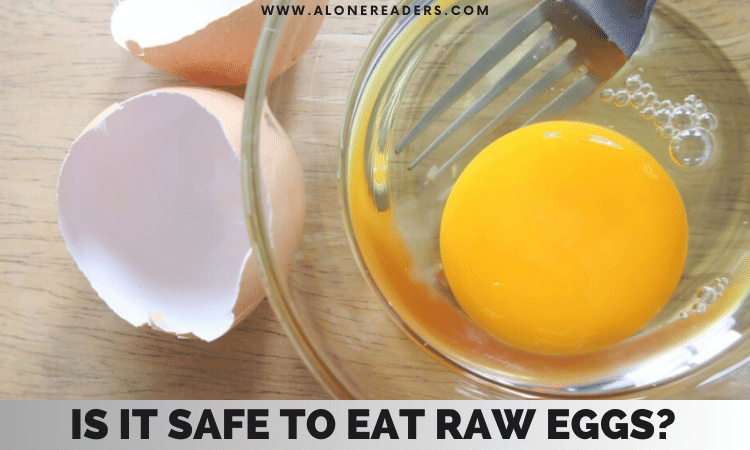
Maybe you also prefer things like sunny-side-up eggs, Caesar dressing, and foamy cocktails like pisco sours that contain raw eggs. Or perhaps you unintentionally ate eggs that were undercooked.
But is it safe to eat raw eggs? The quick answer is no, eating raw eggs is not entirely safe.
You face the risk of getting salmonellosis by eating raw eggs, a foodborne infection that can result in diarrhea, fever, and stomach cramps. Salmonella bacteria cause this illness. Both the egg itself and the eggshell can contain salmonella. Eggs that are uncooked or undercooked provide a higher chance of containing Salmonella than eggs that are fully cooked.
Even though the majority of patients recover in four to seven days without medical treatment, salmonella infections cause 400 fatalities yearly.
Salmonellosis outbreaks have been linked to raw and undercooked eggs, as well as beef, poultry, raw or undercooked bread, raw dairy products, fruits, leafy greens, raw sprouts, fresh vegetables, nut butter, and nut spreads, and even pet food in the United States.
Although efforts are made to track back the origin of foodborne infections, it can be challenging to locate the root of an outbreak, therefore it is unknown exactly how many cases of Salmonella-related illnesses and fatalities are brought on by eggs.
Salmonella contamination is thought to affect one out of every 20,000 eggs.
There are many reasons for eating raw eggs. First, some recipes call for using raw eggs. Homemade mayonnaise, eggnog, chocolate mousse, some homemade ice cream, Vietnamese cà phê trung (egg coffee), and cocktails that receive their foam from egg whites are just a few recipes that call for whole raw eggs, raw egg yolks, or raw egg whites. You will also be consuming raw eggs if you dip them into the cookie batter before baking your cookies.
Some people unintentionally consume raw eggs, such as when a restaurant serves them an omelet that isn't fully cooked and they don't realize it until it's too late.
Then there are those who believe eating raw eggs is an effective way to increase their protein intake.
There is mixed evidence about the benefits of raw eggs for muscle growth. In fact, several research indicates that cooked eggs provide higher protein absorption. Because you absorb more protein from a cooked egg than a raw egg, if the findings proving that cooked egg protein is better absorbed are accurate, bodybuilders will benefit even more.
Eating raw or undercooked eggs carries the danger of contracting Salmonella, as was previously mentioned. If you believe that you will never become ill after consuming raw eggs, you are mistaken. Indicators to watch out for include vomiting, diarrhea, fever, and stomach cramps. The majority of the time, symptoms appear six hours to six days after infection and remain for four to seven days.
Children under the age of 5, adults 65 and older, and those with weakened immune systems are more susceptible to Salmonella infection and severe illness. These are the top three consumer categories to whom we would absolutely advise against consuming unpasteurized raw eggs.
Experts in food safety advise against eating raw or undercooked eggs if you're pregnant.
If a recipe requires raw eggs, look for pasteurized eggs in their shell, which you might be able to buy in the grocery department with the other eggs. Unpasteurized eggs were put to the test versus pasteurized eggs in 2010 by the Chicago Tribune. Egg whites from pasteurized eggs did not rise up into peaks as well as egg whites from unpasteurized eggs, but they cooked and tasted just as well when they were fried.
Final word
Although eating eggs contaminated with Salmonella can make anybody ill, eating undercooked or raw eggs is especially dangerous for children, the elderly, pregnant women, and those with weakened immune systems. These groups should avoid eggs at all costs. If you intend to eat raw eggs, it is best to use pasteurized eggs. Additionally, whether handling pasteurized or unpasteurized eggs, always wash your hands both before and after handling.